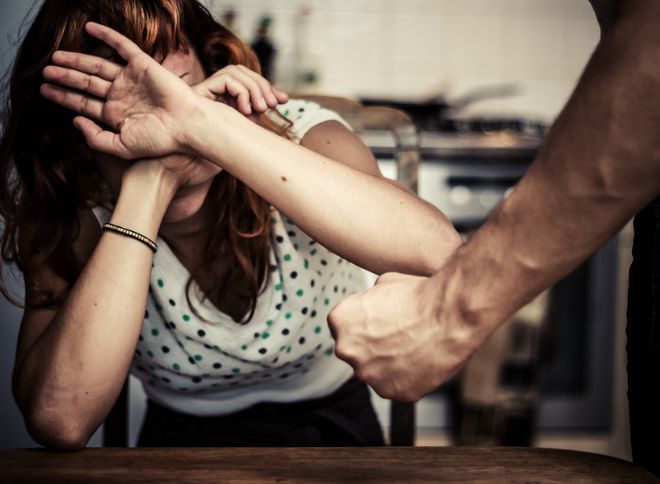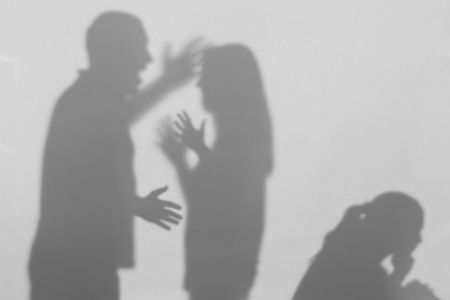The State of Florida has strong domestic violence laws. If you are trying to understand how to prove domestic violence, this guide will provide comprehensive information about how to build a case. Many people across the state are held accountable for their abusive actions every year based on these laws.
We will discuss key factors, including evidence and documentation, the role of witnesses and expert testimony, and how to prove domestic violence without a police report, as well as other important information.
While certain challenges are involved in proving domestic violence, and each case has its intricacies, seeking out resources is critical to building a strong case. It is also essential to understand the legal process to know what to expect – and how to take the next step.
What Qualifies as Domestic Violence
Florida law details a clear legal definition of the multiple forms of abuse that can qualify as domestic violence.
Under Florida Statutes Section 741.28, what qualifies as domestic violence includes:
“Assault, aggravated assault, battery, aggravated battery, sexual assault, sexual battery, stalking, aggravated stalking, kidnapping, false imprisonment, or any criminal offense that results in physical injury or death of one family or household member by another family or household member.”
The law says that perpetrators of domestic violence are “family or household members,” including:
- Husbands and wives
- Ex-husbands and ex-wives
- People who live together as a family
- People who used to live together as a family
- People who are related by marriage or blood
- People who share a child (whether or not they ever lived together or were married)
As you can see, multiple types of relationships can be included under domestic violence laws. The laws were written to protect all individuals in the above categories from physical, emotional, and psychological abuse.
Once you understand what types of abuse and relationships can qualify for a domestic violence case, it is important to know what factors are utilized by legal professionals to prove the case.
Proving Domestic Violence: Evidence and Documentation
When discussing how to prove domestic violence, it is crucial to highlight evidence and documentation as significant factors in building a solid case.
Several types can be used, including:
- Medical Records – any relevant X-rays/other medical tests, doctor’s notes, discharge papers, or other medical documentation.
- Photographs or Videos of Injuries – any digital photos on your or a friend/family member’s phone or camera and/or that were emailed to a friend/family member; any physical images (which can often be printed at a nearby drug store or some retail stores).
- Photographs or Videos of Damaged Items – any relevant photos or videos of damaged items after incidents of abuse, such as household items, holes in walls, damage to doors, or other parts of the home.
- Testimonies – personal, witness, or expert testimonies.
- Police Reports and Other Documentation – any related police reports and other documents, such as personal communications, such as letters or emails documenting domestic violence, may be admissible as evidence.
How to Prove Domestic Violence Without a Police Report
When there is domestic violence in a relationship, it most often occurs behind closed doors. The abuse may go on for a long time without police involvement for a variety of reasons, which could be due to threats from the abuser, privacy concerns, family/children, or other scenarios.
But even if there are no police reports, that does not mean you cannot make a strong case.
Other types of evidence, such as those described above, can support a claim of domestic violence. Photos and medical documentation go a long way to supporting your case. Any documentation you have, including digital communication records such as threatening text messages, voicemails, or emails, can also be utilized to prove domestic violence.
Another powerful component that can be used when you are wondering how to prove domestic violence without a police report is witness and expert testimony.
The Role of Witnesses and Expert Testimony
Witnesses and expert testimony can play a huge role in proving a case of domestic violence.
Even though domestic violence often occurs behind closed doors, in many cases, there will be some type of witness that can corroborate personal testimony and other evidence. Neighbors may have heard or seen abusive altercations. Friends and family members are also frequently used as witnesses as well.
Many perpetrators of domestic violence will show their volatility and desire to control outside of the home. Direct witness testimony can be a key element in proving your case. Additionally, when those who are or have previously been dealing with domestic violence have spoken with friends or family or communicated by other means, such as electronic communications or physical letters, their testimony to what has happened is also a valuable component of a case.
Expert testimony is also utilized to prove domestic violence. Healthcare providers and domestic violence advocates can share their expertise and experience to provide additional key information for the courts to consider.
Overcoming Challenges in Domestic Violence Cases
Domestic violence cases are inherently complex. Certain challenges can arise, but some strategies and actions can be taken to help prove a case. Each has its specific circumstances, but legal professionals with experience in domestic violence cases can analyze the details and work diligently to overcome challenges.
Here are some potential challenges in domestic violence cases and what can be done to overcome them:
- Lack of Physical Evidence – focus on other evidence such as witnesses and expert testimonies, digital communications, audio/video recordings of altercations, any available police reports, and other documentation.
- Credibility Issues – focus on physical evidence, including photos/videos/audio recordings, medical records, any available police reports, digital communications, witnesses and expert testimony, and other documentation.
- Fear of Retaliation/Intimidation –seek out resources, such as domestic violence advocates and shelters; file for a domestic violence injunction or no-contact order; do not answer phone calls and save relevant voicemails/other relevant digital communications; relocate to a safe space with a shelter, family, or friends.
While challenges may cause fear, anxiety, and uncertainty, knowing how to overcome them is essential to move forward to a better, safer future. There are strategies to strengthen cases and seek justice effectively.
No one should have to deal with domestic violence or move forward with a case alone. Multiple resources can help.
Legal Support and Resources for Domestic Violence Cases
The keys to building a strong domestic violence case are experience in associated laws and legal processes, preparation, diligence, and experience in overcoming common challenges in proving cases to the court.
Seeking legal support is incredibly important. An experienced attorney carefully analyzes the case to develop the appropriate strategy and address obstacles. While domestic violence cases have common components, each one has its own details.
Having legal support is vital to the outcome of a domestic violence case. It can help with the challenges of gathering evidence and bringing in expert witnesses, if appropriate.
When seeking legal support, it is critical to consult with an attorney who specializes in domestic violence. Just like going to a specialist when you have a certain health condition, it is best to work with a knowledgeable and experienced attorney in your particular type of case.
In addition to legal support, there are important resources to help keep people safe.
Important Resources and Places That Help:
- Domestic Violence Injunctions/Restraining Orders – If you or someone you know is in imminent danger, file a petition with the Clerk of Court for protection.
- Florida Domestic Violence Hotline – Trilingual, 7 days/week & 365 days/year. Connecting survivors to a local certified center for shelter, support groups, outreach, and ongoing advocacy. 1-800-500-1119.
- National Domestic Violence Hotline – 24 hours a day, seven days a week, 365 days a year, the National Domestic Violence Hotline provides essential tools and support to help survivors of domestic violence so they can live their lives free of abuse. 200+ languages. 1-800-799-7233.
Work with an Attorney
No one should have to endure physical, emotional, and psychological abuse in violent relationships. Children can be severely affected when there is abuse in the household, too. If you or someone you know is in a domestic violence situation, know that there are powerful actions that can be taken to get protection and help prove your case.
Utilizing Florida’s tough domestic violence laws, experienced attorneys can build strong cases with various types of evidence, including testimony and documentation.
Even if you feel you have challenges, that does not mean they cannot be overcome. Attorneys frequently deal with obstacles and have the experience, knowledge, and skills to confront them and build the best case possible.
Know that resources are there to help keep people safe – and to move on to a better, safer life.
Dean Tsourakis is a domestic violence attorney in Florida who has 26 years of experience as a State Attorney’s Office prosecutor and understands the intricacies of domestic violence cases. He can help you free yourself from a violent and abusive environment.
Contact Dean Tsourakis today for a free, confidential consultation.
on Apr 8, 2024



